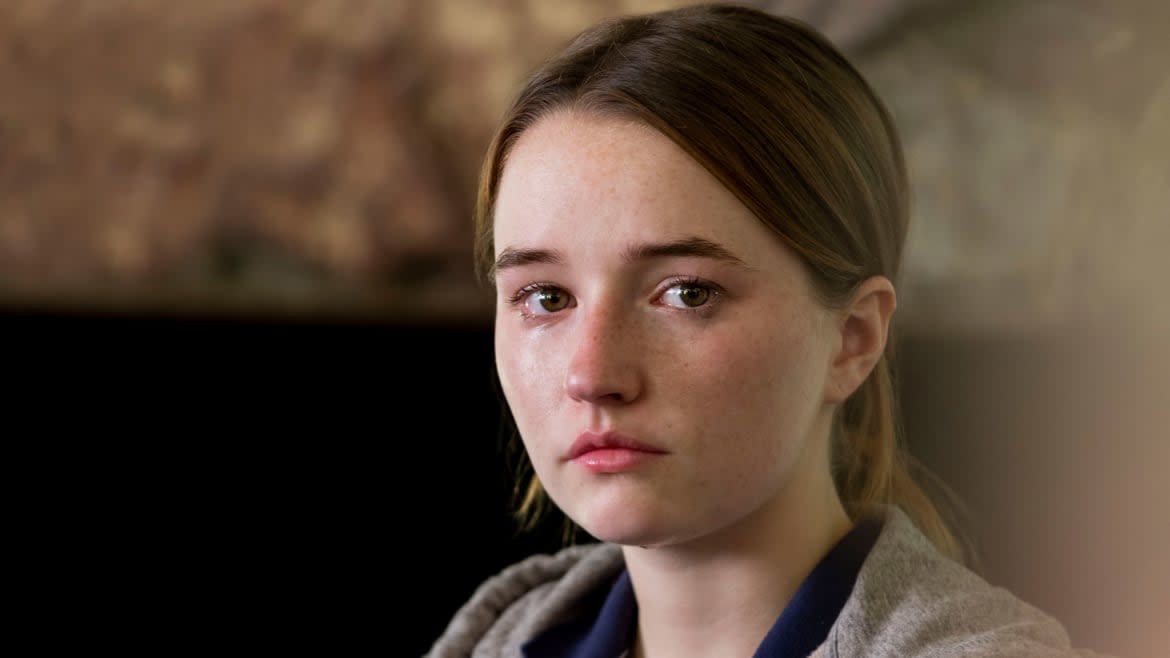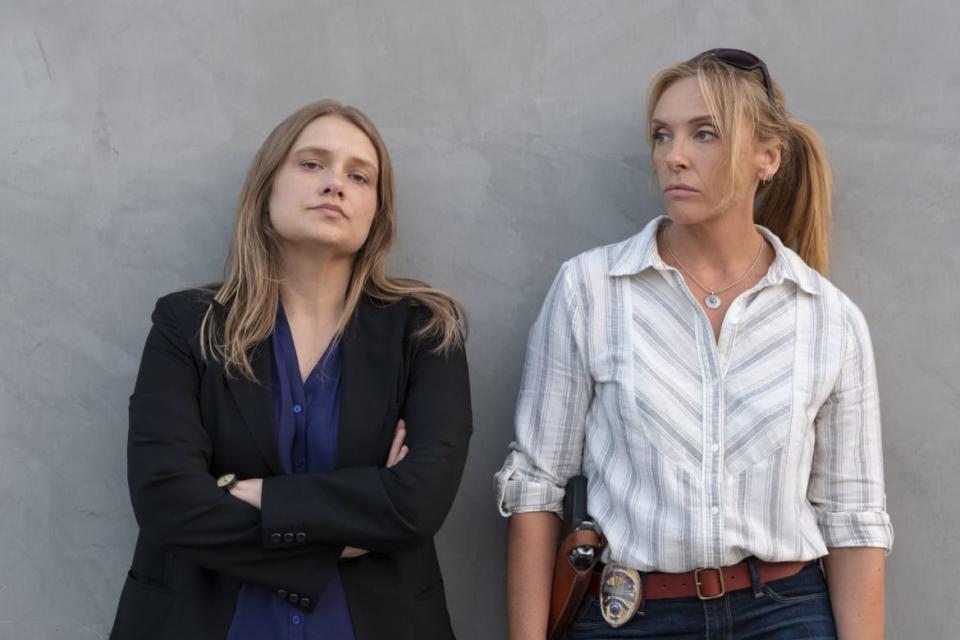She Said She Was Raped. Then She Said She Lied.

The first words spoken by Marie are “I was raped.”
A cop had just arrived at her apartment. Her former foster mother, Judith, was there, too, having come as soon as the 18-year-old girl called. She starts to tell them what happened. “I was asleep…” she begins.
After talking on the phone all night with a friend, she dozed off after 4 a.m.. She was startled awake by a man wearing black mask standing over her. “If you scream, I’ll kill you,” he says. He blindfolded her, bound her wrists with shoelaces, and penetrated her, threatening her with a knife. He took pictures, saying that if she told anyone, he would post them. After he left, she freed herself and called for help.
Then a different detective arrives. He needs her to explain what happened again, so that he hears it firsthand. “I was asleep…” she begins.
Marie is taken to the hospital, where she undergoes an invasive rape kit. When it’s done, the doctor explains that she needs Marie to tell the story again, this time for her records. “I was asleep…” she begins.
The detectives take Marie to the police station to talk about the investigation. They need her to file an official written statement. She would have to tell the story another time. “I was asleep…”
These opening minutes to the new Netflix limited series, Unbelievable, are unbearable. Yet as the premiere episode goes on, things become even more excruciating for Marie, played in an astonishing performance by Booksmart breakout Kaitlyn Dever. The horrifying details closely follow those reported in the Pulitzer Prize-winning investigation published in 2014 by T. Christian Miller of ProPublica and Ken Armstrong of The Marshall Project, titled “An Unbelievable Story of Rape,” which Unbelievable is adapted from.
Were These 8 Women Murdered by a Serial Killer-Pimp—or the Cops?
‘13 Reasons Why’ Redeems a Rapist. But Seriously... Why?
“An 18-year-old said she was attacked at knifepoint. Then she said she made it up. That’s where our story begins.” Those opening words of Miller and Armstrong’s article kick off the eight-episode series, which quickly expands in unsettling and invigorating scope.
It’s a thrilling, searing, and most of all rage-inducing telling of negligence, institutional misogyny, and victim injustice. It’s also an impressive, no-frills procedural, chronicling the mammoth undertaking by an intrepid duo of female detectives who worked tirelessly to see that a violent criminal is caught and a constellation of women who had been wronged are vindicated. That Marie would be among them is the biggest surprise, and, in turn, ultimate justice.
As Unbelievable’s first hour unfolds, the people in Marie’s life, including her former foster mothers Judith and Colleen (Elizabeth Marvel and Bridget Everett), and the detectives start to question details of her story. The investigation turns into an obsession with specific elements of Marie’s story that aren’t adding up: She untied her hands when? She called who first?—picking them apart rather than trying to piece together other details of the alleged crime.
In a scene that will heat any compassionate viewer’s blood to boiling point, the detectives bully her about these questionable details, flat-out telling her they don’t believe her, and terrifying her about the consequences of a false accusation, until she makes a second statement saying that she made it all up.
She confides in her counselors that she felt coerced, and they encourage her to go back to the detectives and recant again, returning to her original story. Once again, the detectives threaten her with repercussions if it comes out that she was lying. Scared, she lets the official record stay saying that she made it up.
It may seem remarkable that this is just Part One of the story of Unbelievable. In fact, the series leads, Emmy winners Toni Collette and Merritt Wever, have not even been introduced yet.
Marie’s story doesn’t go away. It actually escalates. She is named in the news as the girl who cried wolf. Her friends disown her, calling her a “lying slut.” She is officially charged with the false reporting of a crime. All the while, she is haunted by the memories of her rape.
In episode two, we’re transported to an entirely new police district, and introduced to another rape victim: Amber, played by Danielle Macdonald (Patti Cake$, Dumplin’). This time it’s Wever’s Detective Karen Duvall who is leading the investigation. You’re immediately struck by her compassion and her thoroughness, in contrast to the skepticism and coldness with which Marie was treated.
Karen relays the details of Amber’s assault to her husband, who is also a cop but in yet another district. There are specifics that sound familiar to him, to another rape case being worked by Detective Grace Rasmussen (Collette). He suggests the two of them connect.
When they meet, they’re not just struck by the similarities of their cases, but by the seeming expertise of the alleged rapist in both instances. He was meticulous, removing nearly all traces of DNA from the scene of the crime, including ensuring that his victims shower away all physical evidence while in his presence.
While working, Karen and Grace land on another bit of insider expertise he may have: It is rare that detectives across precincts and districts collaborate or share details on cases. What if this is a serial rapist who strikes purposefully in new jurisdictions each time? Grace has an epiphany: “You could have detectives in eight different departments investigating eight identical rapes without knowing they’re chasing the same guy.”
Unbelievable, in this case, has dual meaning. There is the breadth of the investigation once Grace and Karen have this realization—that it is almost unbelievable that they managed any sort of triumph. Then there’s the case of Marie, whose story was ruled “unbelievable” by detectives not trained in the sensitivities and nuances of victim reporting, aggravating a young woman’s pain.
We’ve spoiled some of the details of the first three episodes of the series, though none would be truly shocking to anyone who has read the series’ description, and certainly not to anyone who has read Miller and Anderson’s story. There are names and specifics that are altered between their piece and the series, but the gist of the saga, unbelievable as it may be, remains the same.

Merritt Wever and Toni Collette star in Unbelievable.
In fact, if you were to read the ProPublica/Marshall Project investigation at any time before, during, or after watching Unbelievable, you’ll be struck by how similar the story reads to how the series feels.
The most impressive thing about the series, which counts Susannah Grant as showrunner and Lisa Cholodenko among its directors, is that it resists any urge towards sensationalism or exploitation, which spoils so many television dramas that attempt an exploration of sexual assault. (First to come to mind is Unbelievable’s streaming sister, Netflix’s 13 Reasons Why.)
The nature of these crimes and the effects they’ve had on these women speak for themselves. There’s little fussiness or needless flourish in style or storytelling. The anger you feel as a viewer and the burning desire for justice as the investigation intensifies provide the fireworks it needs. One might even call the plaintive approach to telling this story journalistic in nature.
This past year, we’ve reckoned with several TV series that are unpleasant to watch, difficult in the ways in which they reflect the ugliness and unfairness of the world back in our faces, when the reality already seems too inescapable. Certainly count Unbelievable among those, though there is a certain adrenaline towards triumph that works in its favor. The series is yet another reminder that hard-to-watch and must-watch are descriptions that are no longer mutually exclusive.
Got a tip? Send it to The Daily Beast here
Get our top stories in your inbox every day. Sign up now!
Daily Beast Membership: Beast Inside goes deeper on the stories that matter to you. Learn more.

